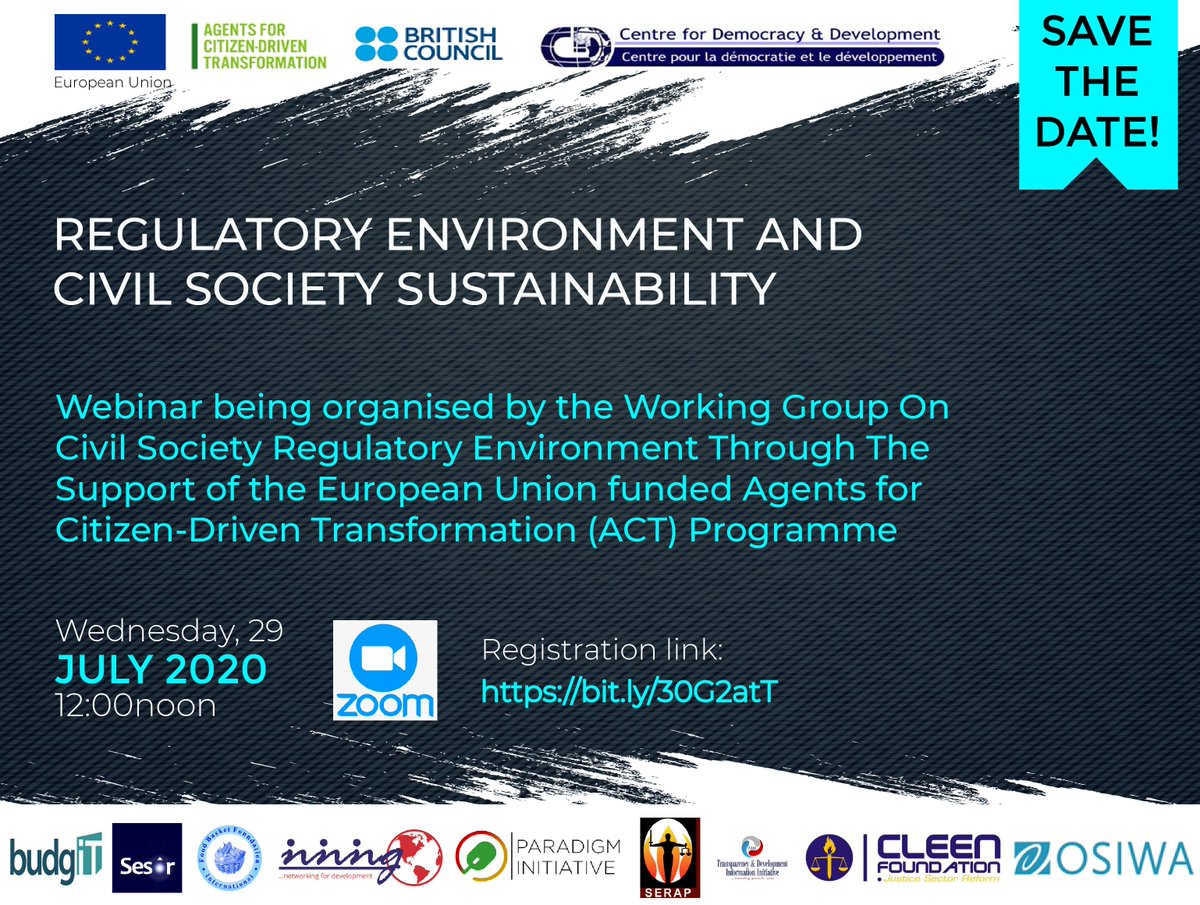‘Weak understanding of regulatory frameworks responsible for CSOs’ misconceptions on CAMA 2020”
Experts say lack of understanding regarding regulatory frameworks on the affairs of Civil Society Organizations (CSOs) and Non- Governmental Organizations (NGOs) in Nigeria is responsible for the misconceptions about the new Corporate and Allied Matters Act (CAMA) 2020.

It was in view of the controversies that trailed the new CAMA 2020 that Sesor Empowerment Foundation, in collaboration with the Working Group on Civil Society Regulatory Environment, on Wednesday hosted a webinar discussion titled, “CSOs in Nigeria: A Journey Through Time -History, Impact and Regulation.” The webinar was organized with the support of the European Union (EU) Agents for Citizen-Driven Transformation (ACT) Programme; Open Society Initiative for West Africa (OSIWA) and the British Council.
In her remarks at the webinar, Dr. Josephine Ogazi, executive director of Widows and Orphans Empowerment Organization, (WEWE) charged CSOs to learn about the regulatory frameworks guiding their operations so as to know where they stand in terms of accountability. She identified Incorporated Trustees and Limited by Guarantee as types of registrations allowed for NGOs in part F of the CAMA 2020, noting that about 90% of NGOs were registered under Incorporated Trustees which, she said, wasn’t the best option.
“Based on this new regulatory framework, NGOs which are registered as Incorporated Trustees (IT) are not registered into the law because the law only register individuals; in essence, IT registration doesn’t register an NGO as a body corporate but as individuals. Meanwhile, Limited by Guarantee registration registers an organization into the law as a body corporate,” Dr Ogazi said.
While speaking on compliance mechanisms and procedures to avoid government sanctions on CSOs and NGOs, Reverend Father George Ehusani, executive director of Lux Terra Foundation outlined registration with the Corporate Affairs Commission (CAC), bi- annual audit report, tax clearance among others, as ways to ensure compliance with the new regulations of CAMA 2020. He therefore stressed the need for CSOs to comply with the mechanisms since noncompliance gives the government the right to suspend trustees of NGOs and CSOs.
Professor Sam Amadi, director of the Center for Public Public Policy and Research, while speaking on the implications of the new CAMA described the new act as “a combination of efforts by experts, stakeholders, lawyers and parliamentarians to sharpen the corporate law in Nigeria so as to drive efficiency and make for an easier way to incorporate companies. Primarily, registered trustees of NGOs are not entitled to receive renumeration except for expenses incurred and other incidentals.”
Overtime, there has been lingering allegations from government agencies that some CSOs and NGOs were anti-Nigerian government. It was against this backdrop that the virtual engagement was hosted with the aim of facilitating a better understanding of the sector by examining the typologies, history, evolution and roles of CSOs in Nigeria from pre- independence till date.









